Dentist who killed Cecil the lion apologises to patients for the ‘disruption’ to his business
AS TWO men are charged for skinning and beheading Cecil the lion, the US dentist responsible for the hunt has issued an apology. But he remains in hiding.
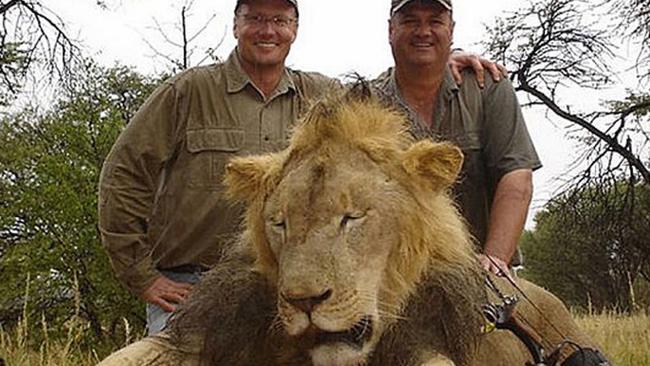
A PROFESSIONAL Zimbabwean hunter has been granted bail on charges of “failing to prevent an illegal hunt” after he organised an expedition in which an American dentist killed a lion popular with tourists.
The death of Cecil the lion triggered an outpouring of anger around the world after it was alleged that the beast was lured out of Hwange National Park and shot with a powerful bow and arrow.
Theo Bronkhorst, wearing a green sleeveless jacket, was on Wednesday ordered to lodge a $US1,000 ($A1,363.05) deposit at the court in Hwange in north-western Zimbabwe after a day of negotiations between police, prosecutors and lawyers.
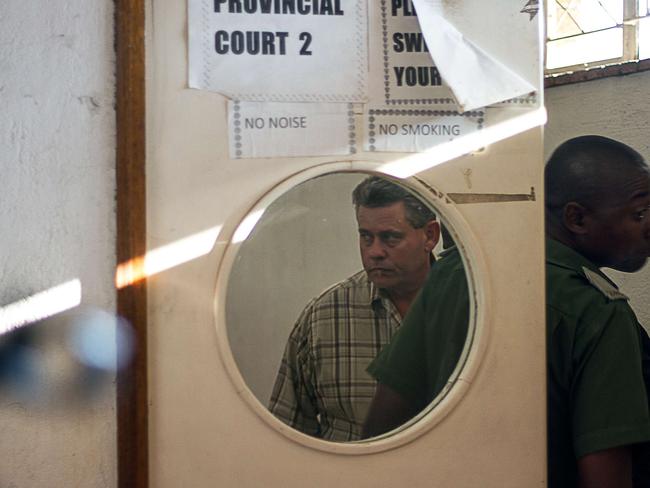
Dentist Walter Palmer, an experienced trophy hunter from Minnesota, is thought to have left Zimbabwe some weeks ago.
“After hearing submissions from both counsel, bail is hereby granted,” magistrate Lindiwe Maphosa said, setting Bronkhorst’s trial date for August 5.
Co-accused Honest Ndlovu, a land owner, was scheduled to appear in court on Thursday on separate charges.
Dentist apologises to patients
Meanwhile Palmer, whose whereabouts are unknown, has written a letter of apology to his patients following vicious abuse and anger after he admitted to killing Cecil.
In the letter, published in full by Fox 9, Dr Palmer tries to separate his hunting hobby from his profession as a dentist, pleading with his patients to understand that his presence in the news over the last few days has “nothing to do with my profession or the care I provide for you”.
“In addition to spending time with my family, one of my passions outside dentistry is hunting,” he explained.
“I’ve been a lifelong hunter since I was a child growing up in North Dakota. I don’t often talk about hunting with my patients because it can be a divisive and emotionally charged topic. I understand and respect that not everyone shares the same views on hunting.
“In early July, I was in Zimbabwe on a bow hunting trip for big game. I hired several professional guides and they secured all proper permits. To my knowledge, everything about this trip was legal and properly handled and conducted.
“I had no idea that the lion I took was a known, local favourite, was collared and part of a study until the end of the hunt. I relied on the expertise of my local professional guides to ensure a legal hunt. I have not been contacted by authorities in Zimbabwe or in the US about this situation, but will assist them in any inquiries they may have.
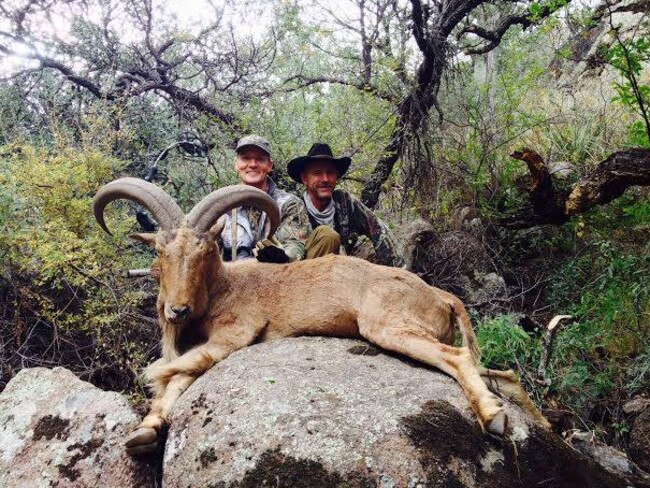
“Again, I deeply regret that my pursuit of an activity I love and practice responsibly and legally resulted in the taking of this lion. That was never my intention.
“The media interest in this matter — along with a substantial number of comments and calls from people who are angered by this situation and by the practice of hunting in general — has disrupted our business and our ability to see our patients.
“For that disruption, I apologise profoundly for this inconvenience and promise you that we will do our best to resume normal operations as soon as possible.
“We are working to have patients with immediate needs referred to other dentists and will keep you informed of any additional developments. On behalf of all of us at River Bluff Dental, thank you for your support.
Sincerely, Walter J. Palmer, DDS River Bluff Dental”.
A family friend said that Bronkhorst believed he had acted legally during the hunt earlier this month and was shocked to find that the lion was wearing a collar.
“He is a very professional, very honest conservationist,” Ian Ferguson said yesterday.
“This has just about destroyed the family, his wife has virtually had a nervous breakdown.
“The whole thing was perfectly legal. When they found the lion had a collar ... he went and reported to the national parks immediately.
“This was just a terrible, very unfortunate act.”
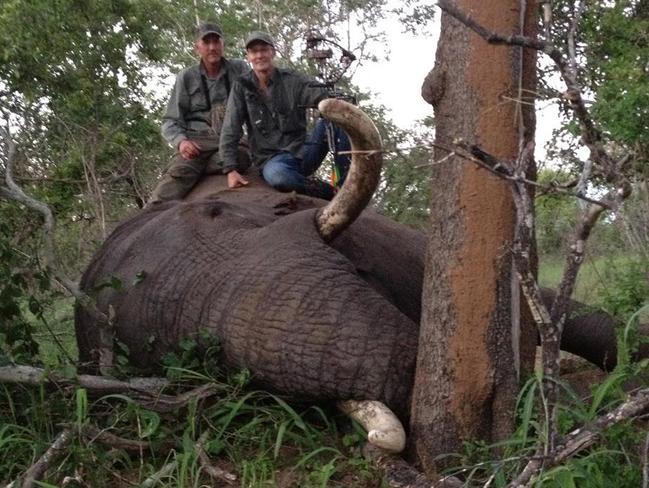
Palmer first issued a statement on Tuesday, saying he had “relied on the expertise of my local professional guides to ensure a legal hunt”.
“I had no idea that the lion I took was a known, local favourite, was collared and part of a study until the end of the hunt.
“I have not been contacted by authorities in Zimbabwe or in the US about this situation, but will assist them in any inquiries they may have,” he said.
The Zimbabwe Conservation Task Force charity said Palmer and Bronkhorst had gone out at night with a spotlight and tied a dead animal to their vehicle to lure Cecil into range.
It alleged Palmer’s first shot did not kill the lion, which was eventually shot dead 40 hours later.
Cecil, aged about 13, was described by safari operators as an “iconic” animal was recognised by many visitors to Hwange due to his distinctive black mane.
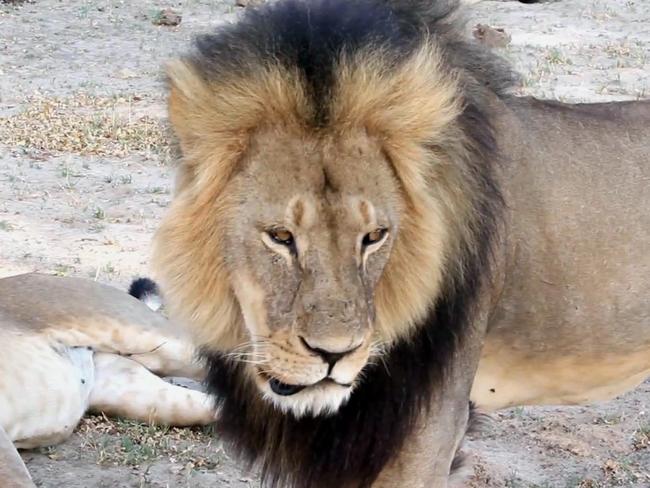
Public outrage
The death of Cecil has been met with a fierce outpouring of anger and grief, with US animal rights group People for the Ethical Treatment of Animals (PETA) even calling for Palmer to be hanged.
“He needs to be extradited, charged, and, preferably, hanged,” Ingrid Newkirk, president of PETA US, said in a statement.
People have also started a shrine outside the dentist’s office by leaving stuffed animals and flowers in honour of he animals killed by Dr Palmer.
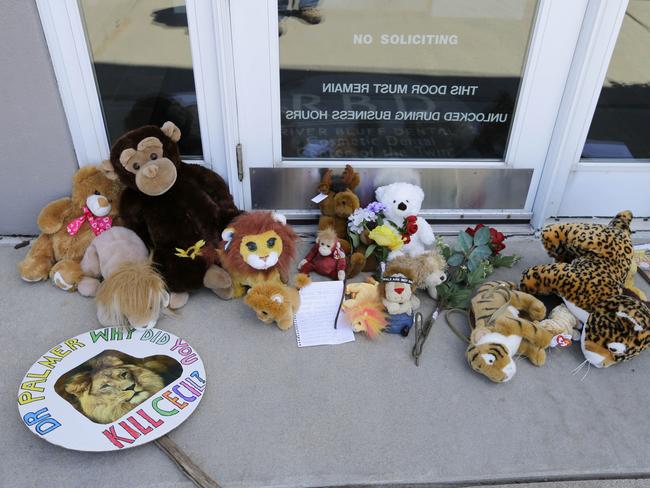
Artist Mark palmer has also began a mural of Cecil the lion outside Dr Walter James Palmer's dental office
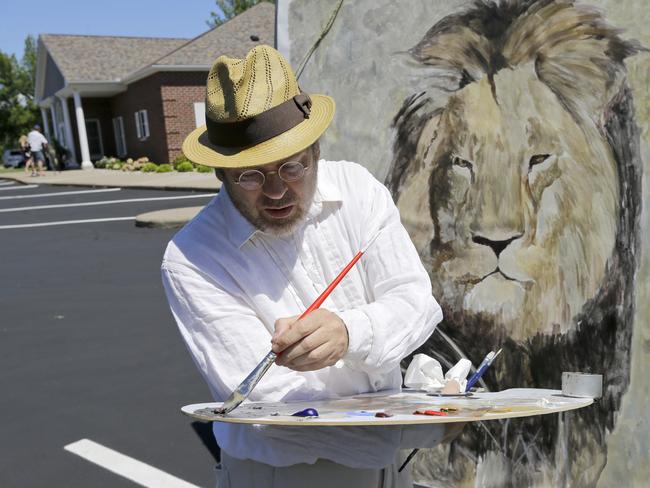
Professor David Macdonald, founding Director of the University of Oxford’s Wildlife Conservation Research Unit which had tracked Cecil since 2008, called for those moved by the lion’s death to donate to conservation efforts to save Africa’s dwindling population of the giant cats.
“This has obviously caused an enormous stir internationally with millions of people concerned about it,” he said.
“If all of those millions of people were to donate just a little bit of money to our project then it would revolutionise our capacity to work for the conservation of lions.”
The professor called for donations via the project’s website to fund the training of local Zimbabwean conservationists, for anti-poaching patrols, and tracking devices for the lions which cost £1,500 ($3200 AUD).
“In west Africa, lions have been disappearing at a catastrophic rate. In central and eastern Africa they appear to be declining fast,” Professor Macdonald said.
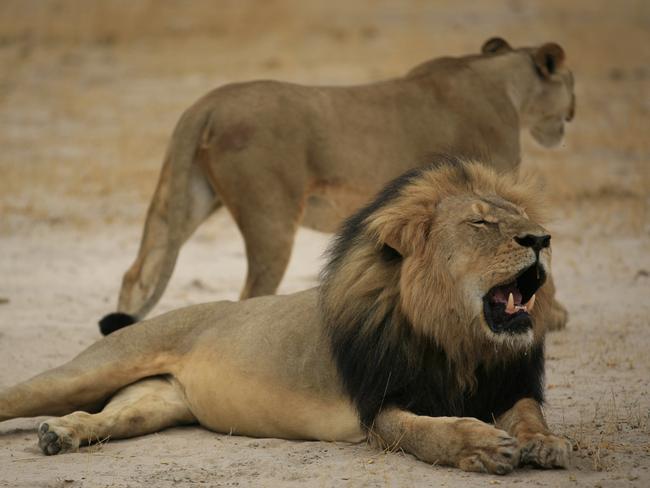
An estimate several years ago put Africa’s remaining number of lions at 30,000, but all evidence indicates there could now be far fewer, he said.
Cecil’s death could lead to the collapse of his “coalition” due to the social behaviour of lions, including Cecil’s brother and his cubs, Macdonald added.
“An important conservation consideration is that the death of one male may lead to a cascade of other deaths,” Macdonald said.
“At a personal level as I have watched this lion ... and gloried in his magnificence and beauty ... I was very deeply saddened by this,” Macdonald said.
“To the extent that it was illegal it was completely reprehensible. But I hope that some good might come out of it in terms of raising the profile of lion conservation around the world.”
Palmer is well-known in US hunting circles as an expert shot with his bow and arrow, and has travelled across the world in pursuit of leopards, buffalo, rhino, elk and other large mammals.
He has a felony record in the US related to shooting a black bear in Wisconsin.



